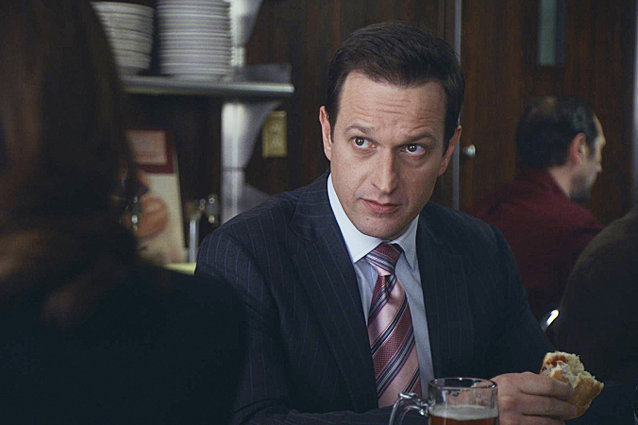 CBS Broadcasting
CBS Broadcasting
There are few things more powerful than the loss of somebody close to you. There are few concepts that can compete in the realms of emotional or psychological oomph, save perhaps for the long-awaited reunion with a loved one. TV knows this. It seems that television writers are keenly aware that killing off a beloved character or bringing someone back from the dead (either literally, or figuratively with a “they weren’t really dead” move) is a surefire way to bring the audience to its knees. Is this fair play? Or is this all too easy — a cheap trick (kind of like the “uh-oh, someone’s pregnant” trope) used on too many shows over the years to get viewers to commit to a series for at least a few more episodes?
Buffy the Vampire Slayer fans will remember that Sarah Michelle Gellar’s character died twice throughout the series. In the Season 1 finale, the Master drowned her and she lay dead until Xander and Angel arrived, and Xander was able to resurrect her through CPR. But a more permanent death took place in the Season 5 finale. After her battle royale with Glory, Buffy made the ultimate sacrifice to save her sister and the world. This time she was really, really dead. In the Season 6 opener Willow, Tara, Xander and Anya brought her back to life with a spell; this was and was not the best idea ever.
So killing off characters, and bringing characters back is obviously not new to television — in fact, it’s starting to feel a bit repetitious. Even on Buffy, it was all a little too convenient at times, but it made for a great plot! Especially when you consider the fact that Buffy came back “wrong” in Season Six and suffered throughout, unable to tell her friends that they had, in a way, ruined her by bringing her back to life. The nature of BtVS also called for this supernatural storyline, but if something like this takes place in a show that isn’t partly based on fantasy, it can feel soap-y or trope-y.
The Good Wife fans and Scandal Gladiators were each dealt a blow recently via the loss of beloved characters Will Gardner and James Novak. Will’s death on The Good Wife was an unbelievable shock and truly hit fans hard, but it was later explained when news broke that actor Josh Charles had asked to be written off the show. Of all the ways the writers could have written his exit (and they had about a year to do it), a courtroom shooting had to be the most dramatic. The death of a character like Will also opens up room for so much more to happen with the other characters. Does Diane become the new Will? Does Alicia totally lose her mind? There are so many possibilities! And, therefore, so many more reasons for viewers to keep watching, to vow to never miss an episode. It should be said though, that The Good Wife does an especially good job of doling out the drama in very realistic ways.
The loss of James Novak (played by Dan Bucatinsky) on Scandal was indeed a shock, and writers did some very fascinating stuff with the dialogue surrounding his death. But it could also be argued that this was another “too easy” move to get audiences all hyped up. Scandal may indeed be getting too dramatic for its own good: people keep getting killed off and we are constantly being introduced to characters who we thought were long gone or dead — namely Olivia Pope’s parents Eli/Rowan and Maya Pope. Sometimes this works out smoothly (like when we found out Huck had a missing family in the “Seven Fifty-Two” episode), but it frequently crosses the line. Writers should tread carefully. Killing the beloved and raising the dead can bring in more viewers, but it can also alienate those of us who don’t want new plot development to be too unrealistic. Shows like ABC’s Revenge caught some backlash and lost the interest of many viewers during Season 2, partly in repsonse to so-called plot twists that were getting to be a bit too predictable.
And then we have ABC’s new series, Resurrection. The entire premise is based on the idea of raising the dead and killing the beloved! Loved ones return to their familes after years and years of being presumed dead. Things, by definition, get all crazy. One has to wonder if these shows are playing on the most basic human emotions — most anyone will react strongly to seeing a parent embrace a child they thought drowned 32 years ago. It’s akin to the idea that it’s easier to make someone cry than it is to make them laugh. If writers can keep core audiences in tears (or on the brink of ’em), they have a better chance of keeping their audiences. But that doesn’t make it good storytelling.
So in the end, perhaps we, the viewers, are partly (even largely) to blame. If these shows didn’t bring on the drama, would we be as aggressively committed (even as we protest to too much drama)? We have to consider our own role in the decisions that are being made concerning our favorite shows. And if we ask for more unique storylines that aren’t dependent on the old tricks of the trade, maybe fresher, more interesting material will develop.
Follow @Hollywood_com Follow @shannonmhouston


